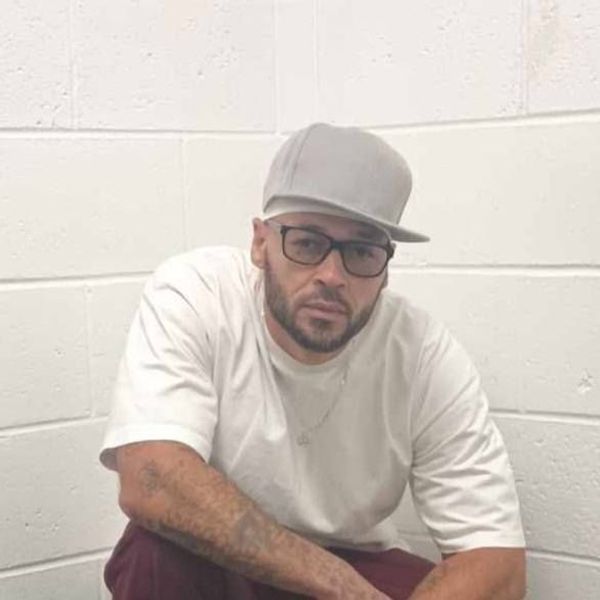After Spending More Than Half His Life Behind Bars, Innocent North Carolina Man Now Free
State's Innocence Inquiry Commission leads to Sledge's exoneration.
Joseph Sledge became a free man on Friday after a three-judge panel declared him innocent of a 1976 murder for which he had been convicted.
Seventy-year-old Sledge, who always maintained his innocence, had already spent 37 years behind bars.
As WRAL reported: "Last month, the North Carolina Innocence Inquiry Commission recommended the case of Joseph Sledge for judicial review after newly discovered evidence cast doubt on whether he had anything to do with the killings of Josephine Davis, 74, and Ailene Davis, 53, in their Elizabethtown home."
Sledge escaped from prison in 1976 where he was serving a four-year sentence for misdemeanor convictions. The same night of his escape, Josephine Davis and her daughter Ailene were murdered.
From CNN: "Sledge was picked up after he was spotted in Dillon, South Carolina, driving a stolen car, arrested and brought back to North Carolina, where he was charged with two counts of first-degree murder in the deaths of the Davises."
Two inmates testified against Sledge, saying that he admitted to the killings. One of those inmates recanted his testimony in 2013, and the testimony of the other was found to be inconsistent. As the Charlotte News & Observer explains, DNA testing wasn't available at the time of the trial, and hair samples taken from the scene could only determine that they belonged to a black man.
Key evidence needed to conduct long-sought new testing wasn't found until 2012, when "court clerks discovered a misplaced envelope of evidence while cleaning out a high shelf of a vault," AP reports. The hairs were then determined not to belong to Sledge.
District Attorney Jon David, who was not the original prosecutor in the case, said Friday, "The 'sorry' is imperfect to convey the magnitude of what happened with respect to this man's life," WRAL adds.
An Urgent Message From Our Co-Founder
Dear Common Dreams reader, The U.S. is on a fast track to authoritarianism like nothing I've ever seen. Meanwhile, corporate news outlets are utterly capitulating to Trump, twisting their coverage to avoid drawing his ire while lining up to stuff cash in his pockets. That's why I believe that Common Dreams is doing the best and most consequential reporting that we've ever done. Our small but mighty team is a progressive reporting powerhouse, covering the news every day that the corporate media never will. Our mission has always been simple: To inform. To inspire. And to ignite change for the common good. Now here's the key piece that I want all our readers to understand: None of this would be possible without your financial support. That's not just some fundraising cliche. It's the absolute and literal truth. We don't accept corporate advertising and never will. We don't have a paywall because we don't think people should be blocked from critical news based on their ability to pay. Everything we do is funded by the donations of readers like you. Will you donate now to help power the nonprofit, independent reporting of Common Dreams? Thank you for being a vital member of our community. Together, we can keep independent journalism alive when it’s needed most. - Craig Brown, Co-founder |
Joseph Sledge became a free man on Friday after a three-judge panel declared him innocent of a 1976 murder for which he had been convicted.
Seventy-year-old Sledge, who always maintained his innocence, had already spent 37 years behind bars.
As WRAL reported: "Last month, the North Carolina Innocence Inquiry Commission recommended the case of Joseph Sledge for judicial review after newly discovered evidence cast doubt on whether he had anything to do with the killings of Josephine Davis, 74, and Ailene Davis, 53, in their Elizabethtown home."
Sledge escaped from prison in 1976 where he was serving a four-year sentence for misdemeanor convictions. The same night of his escape, Josephine Davis and her daughter Ailene were murdered.
From CNN: "Sledge was picked up after he was spotted in Dillon, South Carolina, driving a stolen car, arrested and brought back to North Carolina, where he was charged with two counts of first-degree murder in the deaths of the Davises."
Two inmates testified against Sledge, saying that he admitted to the killings. One of those inmates recanted his testimony in 2013, and the testimony of the other was found to be inconsistent. As the Charlotte News & Observer explains, DNA testing wasn't available at the time of the trial, and hair samples taken from the scene could only determine that they belonged to a black man.
Key evidence needed to conduct long-sought new testing wasn't found until 2012, when "court clerks discovered a misplaced envelope of evidence while cleaning out a high shelf of a vault," AP reports. The hairs were then determined not to belong to Sledge.
District Attorney Jon David, who was not the original prosecutor in the case, said Friday, "The 'sorry' is imperfect to convey the magnitude of what happened with respect to this man's life," WRAL adds.
Joseph Sledge became a free man on Friday after a three-judge panel declared him innocent of a 1976 murder for which he had been convicted.
Seventy-year-old Sledge, who always maintained his innocence, had already spent 37 years behind bars.
As WRAL reported: "Last month, the North Carolina Innocence Inquiry Commission recommended the case of Joseph Sledge for judicial review after newly discovered evidence cast doubt on whether he had anything to do with the killings of Josephine Davis, 74, and Ailene Davis, 53, in their Elizabethtown home."
Sledge escaped from prison in 1976 where he was serving a four-year sentence for misdemeanor convictions. The same night of his escape, Josephine Davis and her daughter Ailene were murdered.
From CNN: "Sledge was picked up after he was spotted in Dillon, South Carolina, driving a stolen car, arrested and brought back to North Carolina, where he was charged with two counts of first-degree murder in the deaths of the Davises."
Two inmates testified against Sledge, saying that he admitted to the killings. One of those inmates recanted his testimony in 2013, and the testimony of the other was found to be inconsistent. As the Charlotte News & Observer explains, DNA testing wasn't available at the time of the trial, and hair samples taken from the scene could only determine that they belonged to a black man.
Key evidence needed to conduct long-sought new testing wasn't found until 2012, when "court clerks discovered a misplaced envelope of evidence while cleaning out a high shelf of a vault," AP reports. The hairs were then determined not to belong to Sledge.
District Attorney Jon David, who was not the original prosecutor in the case, said Friday, "The 'sorry' is imperfect to convey the magnitude of what happened with respect to this man's life," WRAL adds.

